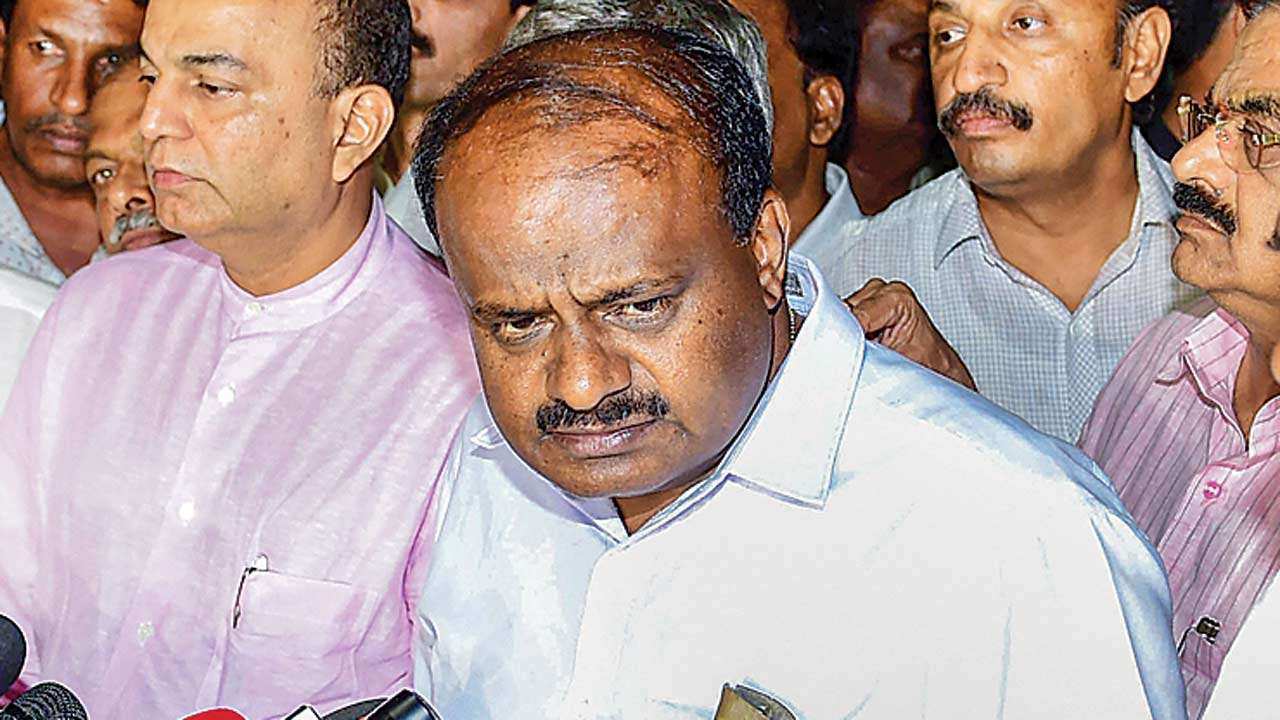DNA Edit: Karnataka alliance – Opportunistic coalitions are unlikely to work
There is a message in this unedifying coalition alliance: always allow the single largest party to form a government

HD Kumaraswamy , PTI
You reap what you sow. A purely opportunistic alliance, set up with the sole intent of thwarting the BJP from forming a government after the Karnataka Assembly elections last year, is now threatening to come apart at the seams. The Congress-JD(S) government is tottering after 12 MLAs of their ruling coalition handed in their resignations to the speaker. Of the 12 who quit, nine are from the Congress and three from the JD(S). The Congress has accused the BJP of trying to topple the state government, dismissing any talk of crisis. This is a classic case of the pot calling the kettle black. In May last year, when the BJP emerged as the single largest party with 104 Assembly seats, the Congress and the JD (S) — both sworn enemies with 78 and 37 seats respectively — decided to join hands to keep the BJP out. Well, the shoe is in the other foot now. The last one year, since the coalition government assumed power, has been traumatic.
Chief minister HD Kumaraswamy has left no opportunity to demonstrate his unhappiness with the fractious government that he presides over. Charges and counter-charges have been exchanged on a daily basis between the two allies, which can hardly be conducive for sound governance. After all, if fighting to save ‘secularism’ was the only criterion for putting the alliance in place, then they should have ensured that no daily sniping took place and that the alliance worked smoothly. That, sadly, did not happen. Now, there is little point in blaming the BJP. If disgruntled MLAs have decided to throw in their lot with the saffron party, they probably have good reasons to do to. There is a message in this unedifying coalition alliance: always allow the single largest party to form a government. By not doing so, you leave the door open for dissatisfied elements to create trouble in the long run.